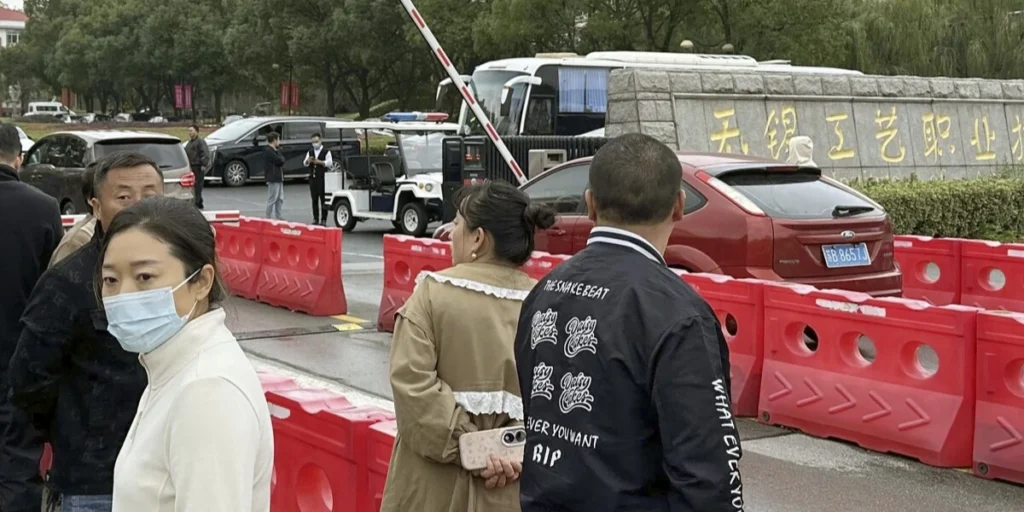
“The Chinese people are so miserable,” was posted on a social media platform after another mass killing in the Chinese region in the first half of this year. The same user also warned: That way, they just opined there could only be more and more copycat attacks.
“This is the greatest tragedy because it shows the ugly side of people,” another added.
Such pessimistic conclusions, which were made in connection with a number of tragic crimes that occurred in China in 2024, have arisen doubts how can people be driven to kill strangers in order to “get revenge on society.”
This kind of attack is still relatively rare given China’s enormous population, and is not unprecedented, said David Schak, an associate professor at Griffith University in Australia. But they appear in cyclic order, and most of the time are intended to be imitative of the previous incidents in the aim of getting fame.
This year, it seems there has been way too many distressing events.
Analyzing the data from 2019 to 2023, the police registered 3-5 cases annually when the offenders assaulted passers-by or strangers.
In 2024 the numbers increased to nineteen.
For those of 2019, three persons were killed and 28 others injured in such mishaps; for 2023, 16 persons perished, and 40 were injured and in 2024 corresponding figures were 63 killed and 166 injured. November was especially bloody.
Later that month, in the 11th, a 62-year-old man drove a car into people exercising by a stadium in Zhuhai city and killed at least 35. Police said that the driver had been dissatisfied with recent divorce and the way he was treated in the process. This week he was sentenced for death.
A few days after that, in Changde city a man in a car struck a group of children and parents near a primary school; 30 of them were hospitalized. The authorities claimed that he was upset with some financial issues and family issues.
During the same week, a 21-year-old who could not graduate after he failed his exams, took a knife in a campus in Wuxi city and stabbed eight people to death and left 17 others injured.
Last September, a 37-year-old attacked people in a shopping mall in Shanghai using a knife when he was running around. In June, four American instructors were beaten at a park by a 55-year-old man armed with a knife. There were two other attacks on Japanese people in which a 10-year-old boy was killed when stabbed with a knife at the school compound. The culprits have mostly attacked ‘strangers’ to indicate disdain with society, according to Prof Schak.
These killings have caused quite understandable concern in the country with extensive surveillance capabilities in which women do not blink an eye before walking alone at night.
Therefore, what fundamentals have led to such numerous mass attacks in the country this year?
China’s slowing economy
Currently, one of the biggest sources of pressure in China is the slow economy. Of course everyone is well aware that there has been high youth unemployment, massive debt and a real estate crisis whereby families have lost their life savings on investments and in some cases houses that are almost worthless.
There are entire estates on the outskirts of most of our large cities where developers have halted construction because they cannot raise the money to finish the buildings. In 2022 the BBC talked to the inhabitants who chose to stay in the poured concrete buildings without roofs, windows, water and electricity because they could not find any other shelter to turn to.
Indeed, optimism does appear to have waned,” responds George Magnus, a research associate at Oxford University’s China Centre. Let us use the word trapped for the time being or let us use it now for that was the word they used. I believe that China is now caught in some kind of repression cycle to some extent. The social repression and economic repression stimuli on one hand and a sort of, stagnating economic development model on the other hand.
Some analysis would seem to indicate that there does seem to have been a shift in sentiments, as the Chinese people seem to be growing substantially more pessimistic of their own future. A major survey by the US and China, in which they combined their responses in a way which for years found that these two complaints could regularly be heard – that social inequality resulted from people’s lack of effort, or lack of aptitude – reported in the latest poll that people were now merely citing an ‘unfair economic system’.
“But the question would be who do people really blame?” Mr Magnus asks. And the next step from that is that the system is unfair to me, and I can’t get through. While other PWDs said ‘I can’t be independent,’ or ‘I can’t get a job,’ or ‘I can’t have friends,’ or ‘I can’t go home,’ or ‘I can’t fix my body,’ other PWDs said ‘I can’t change my circumstances.’
A lack of options
In nations with a free media, if you considered you lost your job unjustifiably, or your house was demolished by crooked builders with the assistance of local authorities, you might address reporters to give your story a voice. But that is often not possible in China since most of the newspapers and magazines are owned by the Communism Party of China and many stories which seem to put the government in bad light are not published.
There are the courts – also managed by and for the party –, which are slower and less effective. Much was made on social media here of the Zhuhai attacker’s alleged motive: that he did not secure what he thought was a decent divorce settlement in court. Other outlets for letting off steam have also been closed or reduced by the same authorities, say analysts.
Over the years, Chinese people vent by going online, opined an expert such as Lynette Ong, a professor of political science at the University of Toronto, an expert who elaborated a lot on how these Chinese authorities reacted to pushback from the populace.
Also Read About






